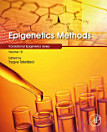Epigenetics of the Immune System
Mayelana nale ebook
Mayelana nomlobi
Dieter Kabelitz is full professor at the University of Kiel, Germany, and Director of the Institute of Immunology. Dieter Kabelitz studied medicine in Freiburg and Munich, Germany. He was a post-doc in Uppsala/Sweden and at Rockefeller University, New York. In 1988, he was appointed Associate Professor for Cellular Immunology at the University of Heidelberg. From 1992 to 1999 he was Head of the Department of Immunology at the Paul-Ehrlich Institute in Langen, Germany. Since 1999 he is a full professor at the University of Kiel and Director of the Institute of Immunology. His scientific expertise is in the field of the functional characterization of human T cells with a special focus on T cells. Current projects aim to explore the potential of human T cells for the immunotherapy of cancer. He has published more than 360 papers listed in PubMed/Medline. Dieter Kabelitz was chairman of the Collaborative Research Center (SFB) 415 „Specificity and Pathophysiology of Signal Transduction Pathways“ funded at Kiel University by the German Research Foundation (DFG). He is a founding member and member of the Steering Committee of the DFG-funded Cluster of Excellence „Inflammation-at-Interfaces“. He was President of the German Society for Immunology (DGfI) in 2011 and 2012, and he is a Council member of the International Union of Immunological Societies (IUIS) and chair of the Education Committee (EDU) of IUIS.
Jaydeep Bhat obtained his bachelor and master degrees in Biotechnology from North Maharashtra University, Jalgaon, India. In 2009, he joined the lab Prof. Shubhada Chiplunkar at the ACTREC under the umbrella of the Tata Memorial Center, the largest cancer hospital in Asia. He studied the genomic and functional characterization of human gd T cells in leukemia and breast cancer. To continue his scientific interest in characterizing gd T cells, Jay joined the lab of Prof. Kabelitz at the Institute of immunology in Kiel, Germany in September 2011 as a Ph.D. candidate. He earned his doctorate in natural science from the University of Kiel, Germany in 2017. His dissertation focused on the epigenetic analysis of human gd T cells and was awarded with the Beigel prize for the year 2017 from the medical faculty of Kiel University. His work has been published in peer-reviewed international journals. Jay was awarded a prestigious NIH (USA) postdoctoral fellowship, where he spent close to one year learning epigenomic techniques and the epigenetic mechanisms of immune cells. He is also a recipient of the research grant from Werner and Klara Stiftung and has supervised DAAD-RISE students. Jay has been an active part of scientific communities and served as a member of student committees including the graduate center of Kiel University, Young Immunologists of the German Immunology Society (DGfI) and NHLBI-NIH.







